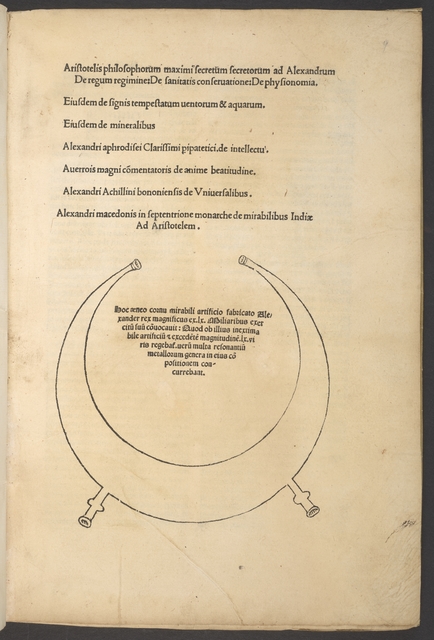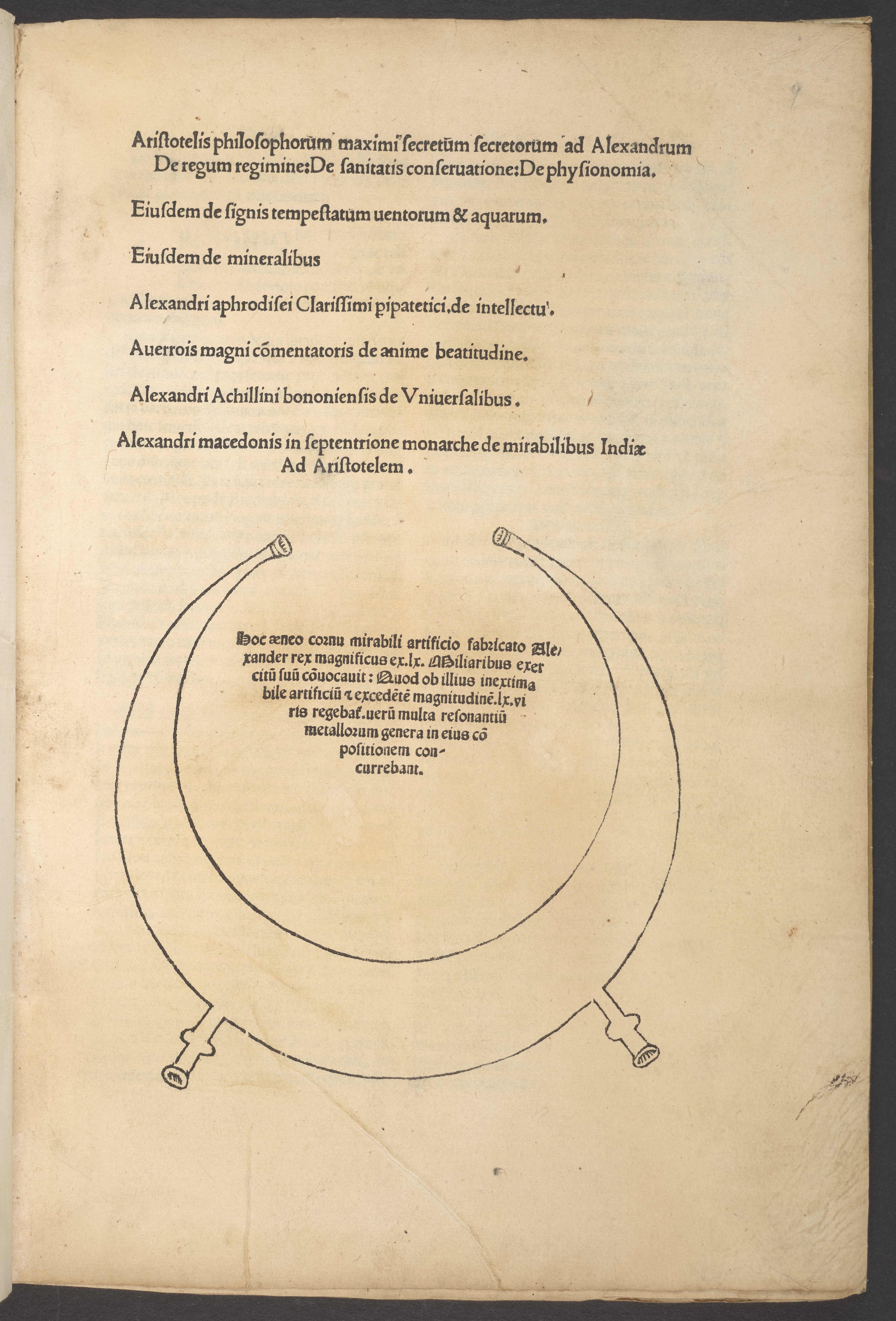XO26 Aristotelis philosophorum maximi secretum secretorum ad Alexandrum. De regum regimine: De sanitatis conseruatione: De physionomia. Eiusdem de signis tempestatum uentorum & aquarum. Eiusdem de mineralibus. Alexandri Aphrodisei clarissimi p[er]ipatetici De intellectu. Auerrois magni co[m]mentatoris de anima beatitudine. Alexandri Achillini Bononiensis de Vniversalibus. Alexandri Macedonis in septentrione monarche de mirabilibus Indiae ad Aristotelem.

Full description
Aristotelis philosophorum maximi secretum secretorum ad Alexandrum. De regum regimine: De sanitates conservation: De physionomia. Eiusdem de signis tempestatum ventorum & aquarium. Eiusdem de mineralibus. Alexandri aphrodisei Clarissimi p[er]ipatetici de intellectum. Averrois magni co[m]mentatoris de anime beatitudine. Alexandri Achillini bononiensis de Universalibus. Alexandri macedonis in septentrione monarche de mirabilibus Indiae Ad Aristotelem (Bologna: Ettore, 1501)
Penn Libraries, Kislak Center for Special Collections, Rare Books and Manuscripts, Folio GrC Ar466 Ef27 1501
This folio edition contains seven treatises on medicine and philosophy edited by Alessandro Achillini (1463–1512), professor of natural philosophy and theoretical medicine at the University of Bologna. It includes several works that explore the relationship between body, soul, and the celestial and terrestrial spheres.
The volume begins with the pseudo-Aristotelian Secretum Secretorum, a popular “Mirror for Princes” text which Achillini was likely drawn to primarily for its sections on occult and divinatory disciplines, including judicial astrology and physiognomy. His edition was the first to include De mineralibus, a pseudo-Aristotelian work on mineralogy, as well as De signis aquarum, ventorum et tempestatum, a pseudo-Aristotelian treatise on weather prediction later attributed to Theophrastus. These texts share a common theme: the interpretation of physical signs as indicators of celestial and astral forces. Achillini was interested in such disciplines throughout his career; in 1503, he published his own treatise on physiognomy and chiromancy, where he emphasized astral influences on earthly events and human destinies.
The remaining works are concerned with the nature of the soul. Achillini here published the first Latin edition of Averroes’ De anime beatitudine, which is included alongside Alexander of Aphrodisias’s De intellectu, and Achillini’s own De universalibus. A proponent of Averroes’ naturalistic interpretation of Aristotle’s philosophy, Achillini defended controversial ideas such as the eternity of the world and unicity of the human intellect, which he nevertheless endeavored to align with Catholic dogma. The volume also includes a fictional letter from Alexander the Great to Aristotle describing the wonders of India. The image on the title page depicts a colossal bronze horn allegedly used by Alexander to gather his army.
This collection was published six more times, in Italy (1503, 1516, 1555), Germany (1505), France (1520), and England (1528).
Eleanor Webb
Comments
to view and add comments.
Annotations
No one has annotated a text with this resource yet.


